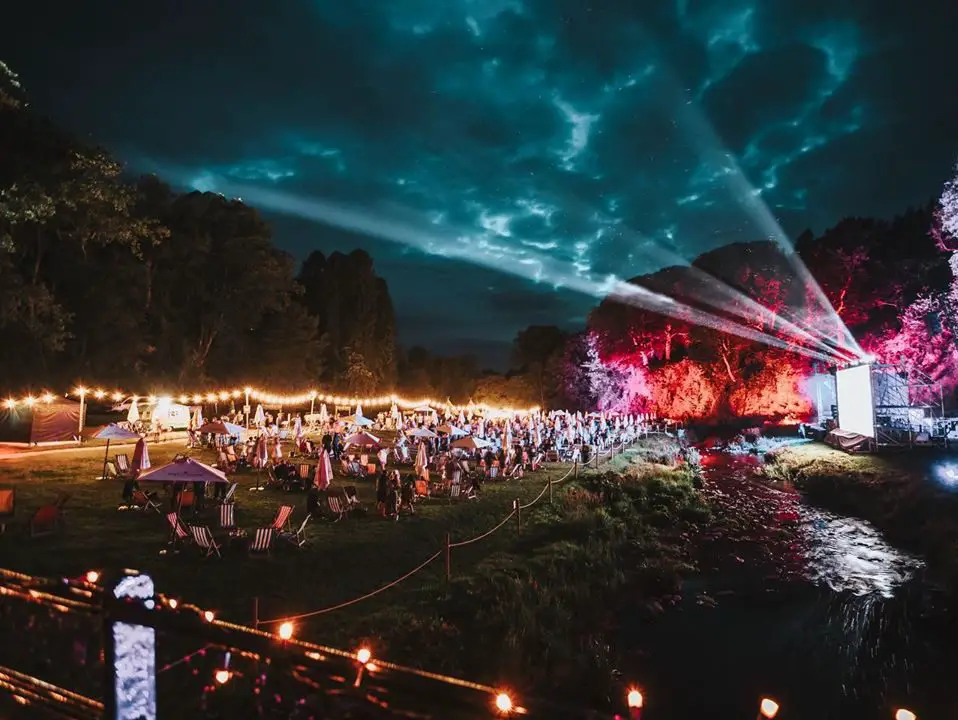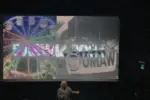Since the COVID-19 outbreak swept the feet out from under the live-music industry, festivalgoers have been dreaming of those first post-pandemic music festivals. To be one with the crowd in the heat of your favorite artist’s set sounds like paradise to those who miss the feeling of waking up, making up and dancing until they can’t dance anymore.
Concert promoters have heard their fans’ cries for live entertainment, and they have tried their best to deliver. These companies have gotten creative in figuring out how to put on large music events that follow social distancing guidelines, and while some are both fun and effective, others have tanked in the safety department.
Instead of pining over pictures and videos of past events, check out the various new avenues through which concert promoters are putting on music festivals.
1. Garden Festivals
From July through August, the United Kingdom opened up a socially distanced, live pop-up music venue at the Gisburne estate in Lancashire. The venue itself consists of private spaces that are individually marked with white paint, each space having the ability to hold at least six people.
Defying the odds, organizer Robyn Isherwood wrote up the plans for the gathering in just several days, and the socially distanced festival was able to take place just two days after companies were given the green light to hold outdoor events.
Guests can enjoy their own outdoor lawn chairs while watching the festival, with waiters bringing food directly to the customers to avoid lines forming at the venue. Guest arrivals and departures are also closely monitored, with staggered arrival and departure times for each group.
There are also yurts available to rent on the estate, which are designed with weekend-long guests in mind for the eight-week-long music festival. Festivalgoers have the ability to walk from their private yurt directly to the music venue, making for easy and safe transport for all of Gisburne’s guests.
Isherwood’s music festival venue was a hit but is also a very small-scale venue in comparison to the large music festivals that fans are used to. Nonetheless, the events at Gisburne have been successful in regard to the crowds of healthy numbers and demeanor.
2. Hotel Balcony Festivals
The next new kind of festival was launched by the well-seasoned Canadian music industry player Rob Cyrynowski. Rightly called Hotels Live, these music festivals are held on hotel balconies. The reasonably priced tickets ($50 per person for a group of four) include the concert itself, along with the hotel room for the weekend.
This concept was the brainchild of Livestar Entertainment Canada and the ticketing company Showpass, whose vision of a vertical music festival was created with the goal of keeping guests safe while still providing the best concert experience.
The concert series started at the Ramada Plaza Calgary Downtown on July 1. The hotel is built with a pool courtyard with a stage facing the balconies of upwards of 100 hotel rooms, each balcony having a mass capacity of four people.
Now enter Dan Davidson, country singer-songwriter. Using the same venue, Davidson serves as the host of Diesel Bird Group’s live country music festival, the Hotel Balcony Music Festival, which took place in early August.
The Diesel Bird Group took care to comply with Alberta Health Services regulations to the fullest extent, making for one of the safest and healthiest music festival formats that have been developed since the start of COVID-19. Watching a music festival from the comfort of a private hotel balcony sounds nothing short of incredible, although it will never be able to replace the feeling of attending music festivals among the masses.
3. Drive-In Festivals
Drive-in style outdoor events have become exponentially popular in the U.S. since the virus began viciously ravaging North America. From sorority social events to political rallies, this method of outdoor gathering has proven to be a safe and easy way to engage people who have been locked up in their homes for months on end.
Guatemalan DJ Carnage announced in May that he was planning on hosting a drive-in rave in Florida called The Road Rave. The festival took place on June 6 and featured live performances by Carnage, Riot Ten, Blunts & Blondes, Nitti Gritti and Gravedgr.
The festival’s capacity was capped at 500 cars with groups of two to six people in each vehicle. Attendees were encouraged to wear masks in their vehicles as food-vendor golf carts roamed the venue, taking orders from festivalgoers at their cars. Each ticket sold for only $50, and a portion of the proceeds went to the ANF COVID-19 Relief Fund.
Although the safety measures put in place by the creators of The Road Rave were extensive, drive-in events have the potential to become a little dicey if festival officials are unable to enforce the coronavirus guidelines established by the festival promoters.
A good example of this tragic mistake was the concert that was put on by The Chainsmokers on July 25 in the Hamptons. Even with safety precautions such as parking spaces that were 20 by 20 feet in dimension and temperature checks, attendees threw caution to the wind and gathered at the front of the stage in an attempt to get the full festival experience.
The Chainsmokers have since been criticized for their event despite the guidelines put in place to protect its guests. The drive-in method seems to work depending on the amount of security hired to keep the peace at these socially distanced music festivals, so promoters will hopefully plan accordingly.
4. Pretested Festivals
In a perfect world, this method of keeping festivalgoers safe while still allowing them to have the full festival experience would be the ideal for live-music fans. Unfortunately, it has yet to be fully developed, but experts are working tirelessly to come up with an airtight plan to execute it in the future.
Insomniac founder and CEO, Pasquale Rotella, was working to make this dream a reality for his postponed Electric Daisy Carnival, which was set to take place this upcoming October. It wasn’t until Aug. 2 that the EDM mogul announced the cancellation of the 2020 festival, with a sorrowful yet hopeful explanation in a heartfelt Instagram post.
Rotella explained to his fans that the reason behind the late postponement was due to the development of a plan to allow festivalgoers to enjoy the festival to the fullest extent, but the promoter was unable to obtain the technology necessary to do so, and the plan fell through.
“We wanted to implement a free two-step testing program,” wrote Rotella, “one test at home before traveling to Las Vegas & another test at the venue when you arrived, in addition to many other enhanced safety protocols.” Rotella went on to apologize for the delay and thank his fans for being patient with the company.
Although this method has not yet come to fruition, the intention behind the idea mends even the most grief-stricken hearts in response to the pandemic. Festivalgoers now patiently wait for a fully developed plan to safely celebrate live music once more.
For some, music festivals represent the best times in their lives. Fans will never forget the friendships formed, the artists discovered and the memories made during music festivals prior to March 2020. Thankfully, the live-music industry has found the strength to persevere and adapt to this harsh environment.
Even though experts continue to predict that it may be years before a normal music festival takes place, it’s heartwarming to see how earnestly some entertainment companies are trying to appeal to their fans and make dreams come true.
Until the next festival, live-music fans have the task of researching the best way to get back into the festival groove. Hopefully we’ll all soon get to see one another on the festival grounds again.

















